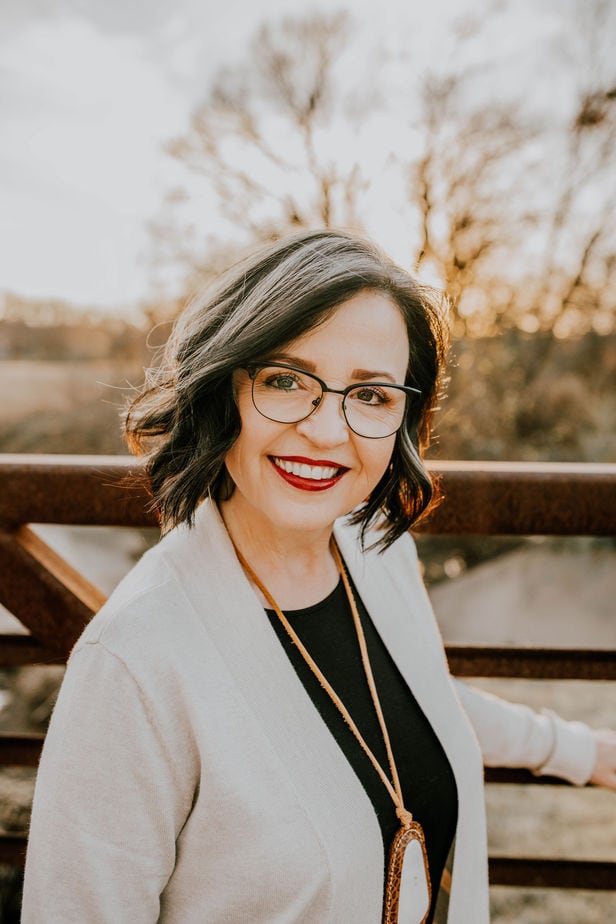Fourteen years ago, my mother was diagnosed with an aggressive form of breast cancer. She was a brilliant woman who’d spent the majority of her career in the legal field as a very sought-after court reporter. But as her disease progressed to her brain, her physical and mental health slowly declined. The woman I knew, the one who could add columns of numbers in her head and spell medical terms longer than her arm, slowly lost the ability to balance her checkbook and manage her meds.
It soon became evident that someone would have to step in and help my father manage her care.
Unlike a lot of caregivers, I was fortunate. I have two sisters and a brother. All of us agreed to give one week a month to come “take care of Mom.” But I lived 8 hours away and had to make the long drive alone. Added to the strain of doing my part for Mom, I had a husband, a drama business, and two teenagers still living at home.
For two years, I juggled Mom’s care and my family. It was the most wonderful thing I’ve had the privilege of doing. It was also the most stressful, exhausting, and one of the saddest times in my life. When Mom’s thoughts were clear, we’d reminisce about old times, or I’d ask questions about her childhood. I did my best to collect her knowledge of our family tree. But as cancer progressed in her brain, the good days became fewer and her thinking became more like that of someone suffering from Alzheimer’s disease.
Mom had little notebooks everywhere with jottings that made no sense and her actions became dangerous. One day she drove her motorized wheelchair to the curb, slid into her old Lincoln, left her scooter on the side of the road, and drove herself to Walmart. When she got to the store, she realized that without help, she couldn’t get to the motorized cart she needed to navigate Walmart. She sat in the Walmart parking lot for thirty minutes, had a good cry, then turned around and drove home. Fortunately, she didn’t wreck the car, she found her way home, and her scooter was right where she left it.
To keep from crying about Mom’s deterioration, I learned to laugh. Humor became my key to surviving the horrible process of watching pieces chip off of this person I’d always thought was invincible. Watching Mom deal with her impending death taught me a lot about how I wanted to die. There were things I wanted to do and so many things I wanted to say while I still could. Most importantly, I gained a deeper appreciation for each day and the importance of faith, friends, and family.
But I wasn’t sure what to do with the stress I felt for how much time taking care of Mom was taking away from caring for my family. We’d just moved to a new city. My teenage children were adjusting to a new home, new school, and trying to make new friends. The burden of taxiing them to all of their activities fell to my husband. Every time I missed one of their activities, I was swamped with guilt. When I was with Mom, I felt like I was failing my kids. And when I was with my family, I worried that Mom’s care would fall through the cracks.
While this fictional story does not depict the exact journey I had with my mother, many of the feelings portrayed in the three-book series come from the ups and downs I experienced during the caregiving process. When I did the research into the different types of dementia, I realized the dilemmas that arose during my intense period of caregiving were not unique to me. Millions of you are currently sacrificing your time, money, and efforts to care for an aging parent. Your struggle is real.
My prayer is that this three-book series will give you permission to laugh, rest, and to ask for help when you feel pulled in a thousand different directions. That you will experience love on the deepest level when you give love to another—whether or not they give love to you. That by your loving actions you will teach your children what it means to love, even when it’s difficult. That you’ll find something to laugh about every day. And that, in the end, you’ll forgive yourself for feeling like you failed everyone who had you sandwiched between two impossible choices.

Lynne Gentry Author Bio
Lynne Gentry is an actor/director turned award-nominated fiction author who loves using her crazy imagination to entertain audiences with her books. Her varied works range from the highly-praised time travel series (Carthage Chronicles) to two laugh-out-loud romantic comedy series (Mt. Hope Southern Adventures and the Women of Fossil Ridge). She recently released a co-written medical thriller (Ghost Heart) with author friend Lisa Harris. RT Reviews calls Lynne Gentry a Top Pick author and one to watch. Readers say her writing is extraordinary and her stories exceptional. When Lynne is not creating enchanting new worlds, she’s laughing with her family or working the cancer wards with her medical therapy dog. Find out more about Lynne and her books at www.lynnegentry.com.
Website: https://www.lynnegentry.com/
Facebook: https://www.facebook.com/Author-Lynne-Gentry-215337565176144/
Twitter: https://twitter.com/Lynne_Gentry
Pinterest: https://www.pinterest.com/lynnegentry7/?etslf=4411&eq=lynne
Instagram: https://www.instagram.com/lynnegentry.author/?hl=en
Amazon links to each book in the trilogy: Flying Fossils, Finally Free, First Frost



